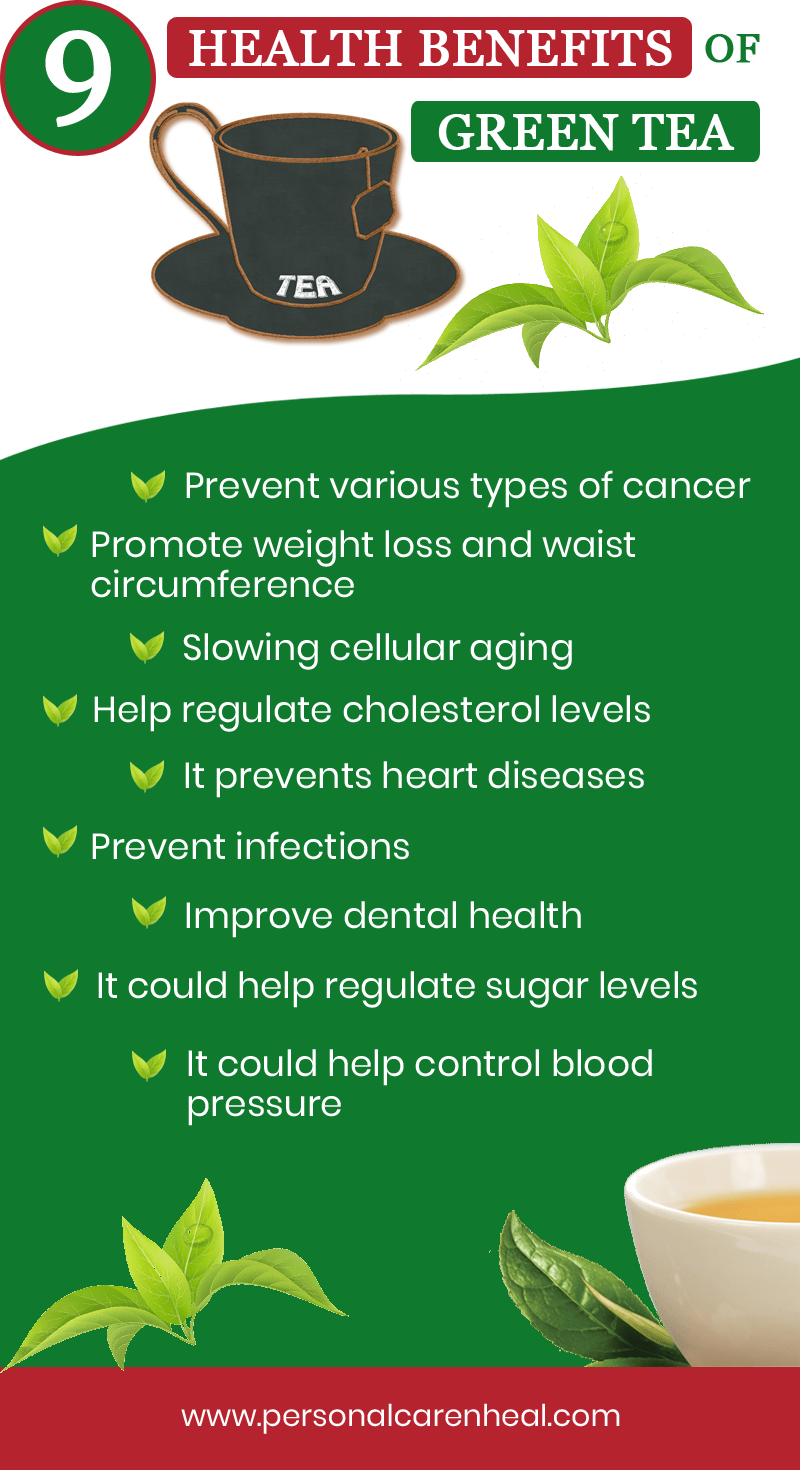9 benefits of green tea and how to consume it
Green tea is a drink that is produced from the fresh leaf of Camellia sinensis. Green tea is rich in phenolic compounds that act as antioxidants and nutrients which provide various health benefits. It also helps in the prevention and treatment of various diseases.
The content of flavonoids and catechins gives green tea various properties. These properties are antioxidant, antimutagenic, antidiabetic, anti-inflammatory, antibacterial, and antiviral effects, as well as having cancer-preventing properties. This tea can be obtained insoluble powder, sachets or capsules. Green Tea can be purchased in supermarkets, online stores and natural products stores.

Health Benefits of Green Tea
The main benefits of green tea for the body are:

Prevent various types of cancer, mainly prostate, gastrointestinal, breast, lung, ovarian and bladder. Green tea is rich in antioxidants that prevent cell damage caused by free radicals, preventing the growth of cancer cells, functioning as a chemopreventive;
Promote weight loss and waist circumference because it contains caffeine, catechins and polyphenols that help accelerate metabolism, causing the body to expend more energy, facilitate digestion, regulate the intestine and combat fluid retention, however , the scientific findings are inconclusive regarding this benefit;
Slowing cellular aging thanks to its high content of antioxidants, which fight free radicals, which are the main cause of cell aging. In addition to this, it helps keep the skin hydrated, giving it a brighter and healthier appearance;
Help regulate cholesterol levels, mainly from bad LDL cholesterol;
It prevents heart diseases by inhibiting the formation of blood clots, reducing the risk of thrombosis and, in turn, the risk of heart attacks and strokes;
Prevent infections, because it has antimicrobial properties that help prevent diseases such as colds, flu and Influenza A and B;
Improve dental health, due to its antimicrobial and anti-inflammatory properties that prevent the formation of caries and periodontitis. Also helping to control bad breath;
It could help regulate sugar levels, since the antioxidant action of catechins helps to decrease oxidative stress and improve insulin resistance, making it a good option both to prevent diabetes and for those who already they suffer it;
It could help control blood pressure, because catechins could help relax blood vessels and consequently regulate tension.
The benefits of this are still under study, however, despite this it has been associated with preventive effects and / or treatment of various diseases. However, there are still some doubts about it, and it should be taken with caution and under the recommendation of health professionals.
How to prepare green tea
Green tea can be prepared alone or can be combined with lemon, mint leaves or fruit. For example, this allows to disguise the bitter taste characteristic of green tea, being easier to drink throughout the day.
Lemon green tea could exert a detox effect on the body, further facilitating weight loss and strengthening the immune system. Read more about the weight loss diet.
To make green tea with lemon is very simple:
Ingredients
1 tablespoon of green tea;
1 cup of boiled water;
Juice of half a lemon.

Preparation method
Add the green tea leaves in the boiled water, cover and let stand for 10 minutes. Strain, add the lemon juice and drink hot or cold.
How should it be taken?
To have all the benefits of green tea, you should take 3 to 4 cups a day. 1 green tea capsule should be ingested in 30 minutes. Green tea Capsule Should be taken after meals 2 or 3 times a day or as indicated by your doctor or nutritionist. Green tea should be drunk between meals because it can decrease the absorption of minerals such as iron and calcium.
During pregnancy and breastfeeding the daily intake should not exceed 1 to 2 cups per day, because it can increase the heart rate.
Possible side effects
It is important not to consume the recommended amount of green tea per day because it can cause insomnia, irritability, nausea, heartburn, vomiting, tachycardia and increased heart rate. In addition to this, it could interfere with iron absorption.
Contraindications
Green tea should be ingested with caution in people who have thyroid problems, as some studies indicate that it could alter their functioning, so it is important to consult a doctor. People with kidney failure, anemia, gastric ulcers and gastritis should avoid it. As well as in those who ingest anticoagulant medications.



